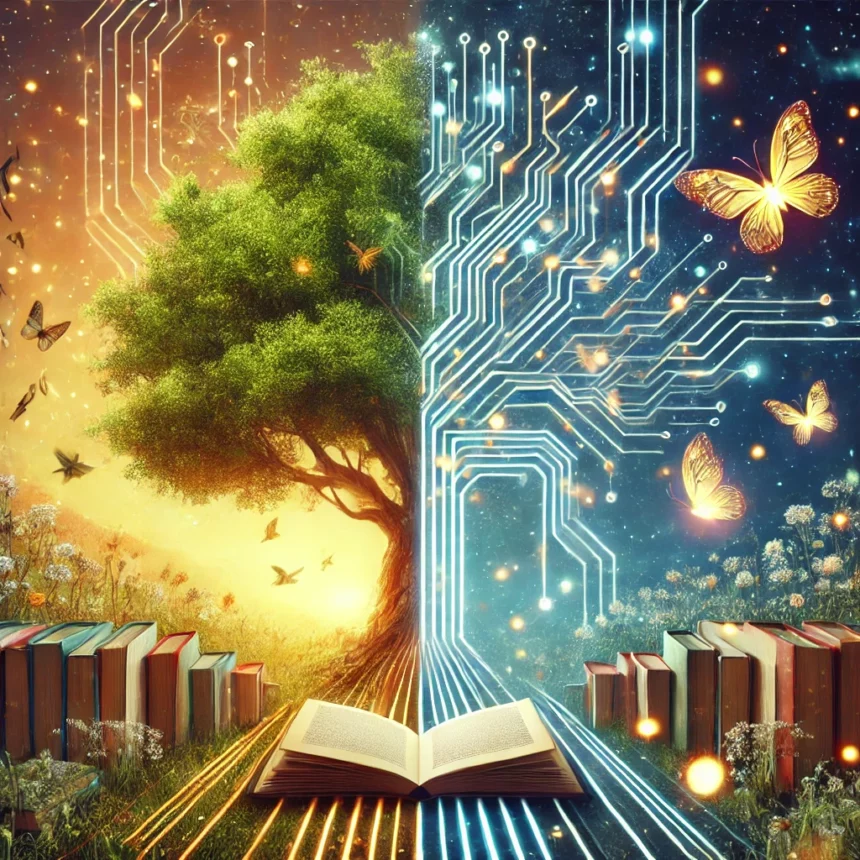We’re presented with it as a disruption: generative AI, capable of spewing out text, images, and code at breakneck speed. And undeniably, it is. But a disruption only reveals the pre-existing tensions and fractures. Generative AI, far from upending an idyllic and egalitarian world, amplifies and crystallizes our own imbalances. It is therefore crucial to move beyond the simplistic discourse about the « technological revolution » and interrogate what it reveals about our society.
Automation of labor: not so much an innovation, as an acceleration of trends
The idea that AI will suddenly devour jobs is seductive for headlines, but dangerously misleading. Automation, after all, is not new. Since the industrial revolution, it has been transforming (and sometimes destroying) professions. Generative AI is rather an accelerator of these trends, now impacting professions considered « intellectual. » But beware: it is not a magical substitution. It’s much more subtle and insidious. It relies on a gradual deskilling of tasks, on increased pressure to productivity, and on an increased standardization of content. The issue is not so much the pure and simple disappearance of jobs, but the degradation of their quality, the loss of worker autonomy, and the concentration of profits in the hands of a minority.
Expertise in the age of AI: more important than ever, but differently defined
The promise of unlimited access to information through AI is seductive, but it masks a trap. Raw information, without context or critical analysis, is as useful as a map without a legend. AI can produce text, but it does not understand the deep meaning of that text, nor its social, political, or ethical implications. Expertise then becomes crucial. Not expertise as an accumulation of knowledge, but as the ability to evaluate the quality of information, to identify biases, to contextualize facts, and to formulate informed judgments. It is an expertise that does not simply repeat what AI says, but questions it, corrects it, and transcends it.
Inequalities: AI, a magnifying mirror of digital and social divides
We are told that AI will « democratize » access to knowledge. This is to forget that access to technology, skills, and networks is far from egalitarian. Those who master generative AI – those who know how to use it effectively, question it pertinently, and criticize it with discernment – will see their capabilities augmented. But those who are excluded from this mastery – those who do not have access to training, tools, or information – will be even more marginalized. AI risks widening the gap between a privileged technological elite and a mass of precarious workers, whose skills are deemed obsolete. This digital divide is not limited to access to technology. It is above all a social divide, which reflects deep inequalities in education, income, and power.
Disinformation: AI, a catalyst for confusion and distrust
Generative AI has the potential to create persuasive and sophisticated content, but also large-scale counterfeits and manipulations. The proliferation of fake news, deepfakes, and automated propaganda risks undermining public trust in information, institutions, and even reality itself. The challenge is not only to detect and denounce fake information, but to strengthen critical thinking, to educate in complex thought, and to promote a culture of doubt and verification. It is also crucial to rethink the economic models of the media and online platforms, which are often incentivized to prioritize engagement (even if it is based on false or misleading information) at the expense of truth and the public interest.
Regulation and responsibility: crucial political questions
Generative AI is not a neutral and objective force. It is the product of political, economic, and social choices. Its development and deployment are shaped by particular interests, algorithmic biases, and regulations (or lack thereof) that favor certain actors to the detriment of others. It is therefore essential not to let AI develop uncontrollably, but to frame it with clear and transparent rules that protect fundamental rights, promote social justice, and guarantee the responsibility of companies and developers. The question is not whether AI is a threat or an opportunity, but how we will shape it and use it to build a more just and democratic society. Generative AI is a powerful tool, but it is not a magic solution. It will only reproduce and amplify the inequalities and injustices of our world if we do not take care to use it responsibly and ethically.
Conclusion: A revolution that forces us to look at ourselves in the face
Generative AI is not a technological revolution in itself, but a mirror that reflects the image of our own contradictions and our own weaknesses. It forces us to rethink our relationship to work, knowledge, information, and democracy. It invites us to question the values we want to defend and the goals we want to achieve. Ultimately, the future of generative AI will depend on our ability to make informed and responsible choices, to put technology at the service of humanity, and to build a more just and equitable society.


Laisser un commentaire